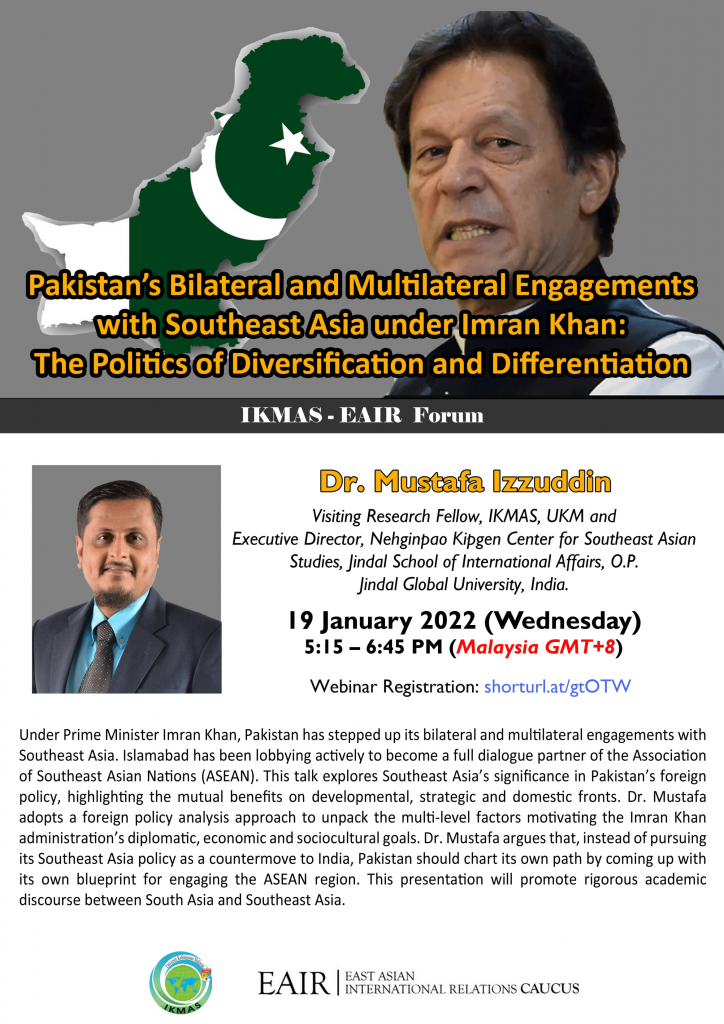
Synopsis:
Under Prime Minister Imran Khan, Pakistan has stepped up its bilateral and multilateral engagements with Southeast Asia. Islamabad has been lobbying actively to become a full dialogue partner of the Association of Southeast Asian Nations (ASEAN). This talk explores Southeast Asia’s significance in Pakistan’s foreign policy, highlighting the mutual benefits on developmental, strategic and domestic fronts. The speaker adopts a foreign policy analysis approach to unpack the multi-level factors motivating the Imran Khan administration’s diplomatic, economic and sociocultural goals. Dr. Izzuddin argues that, instead of pursuing its Southeast Asia policy as a countermove to India, Pakistan should chart its own path by coming up with its own blueprint for engaging the ASEAN region. This presentation will promote rigorous academic discourse between South Asia and Southeast Asia.
About the speaker:
Dr Mustafa Izzuddin is Associate Professor and Executive Director of the Nehginpao Kipgen Center for Southeast Asian Studies at the Jindal School of International Affairs, O.P. Jindal Global University. He is also a Visiting Research Fellow at IKMAS, UKM. Dr Mustafa also holds and has held adjunct and visiting teaching and research fellowships in Singapore, Malaysia, Indonesia, India, Pakistan, China, Morocco, United Kingdom, and the United States. He also serves as a Senior International Affairs Analyst at Solaris Strategies Singapore. Dr Mustafa has also been appointed as the first Singaporean to serve as an international or external expert in civilizational dialogue for the Center of Civilizational Dialogue at the Islamic World Educational, Scientific and Cultural Organization (ICESCO), which comes under the aegis of an international organization, the Organization of Islamic Cooperation (OIC). A Fulbright Scholar and a keen observer of Southeast Asian affairs for the past 15 years, Dr Mustafa received his PhD in International Relations from the London School of Economics and Political Science (LSE) after successfully completing his dissertation on a neoclassical realist interpretation of Malaysia-China relations.
